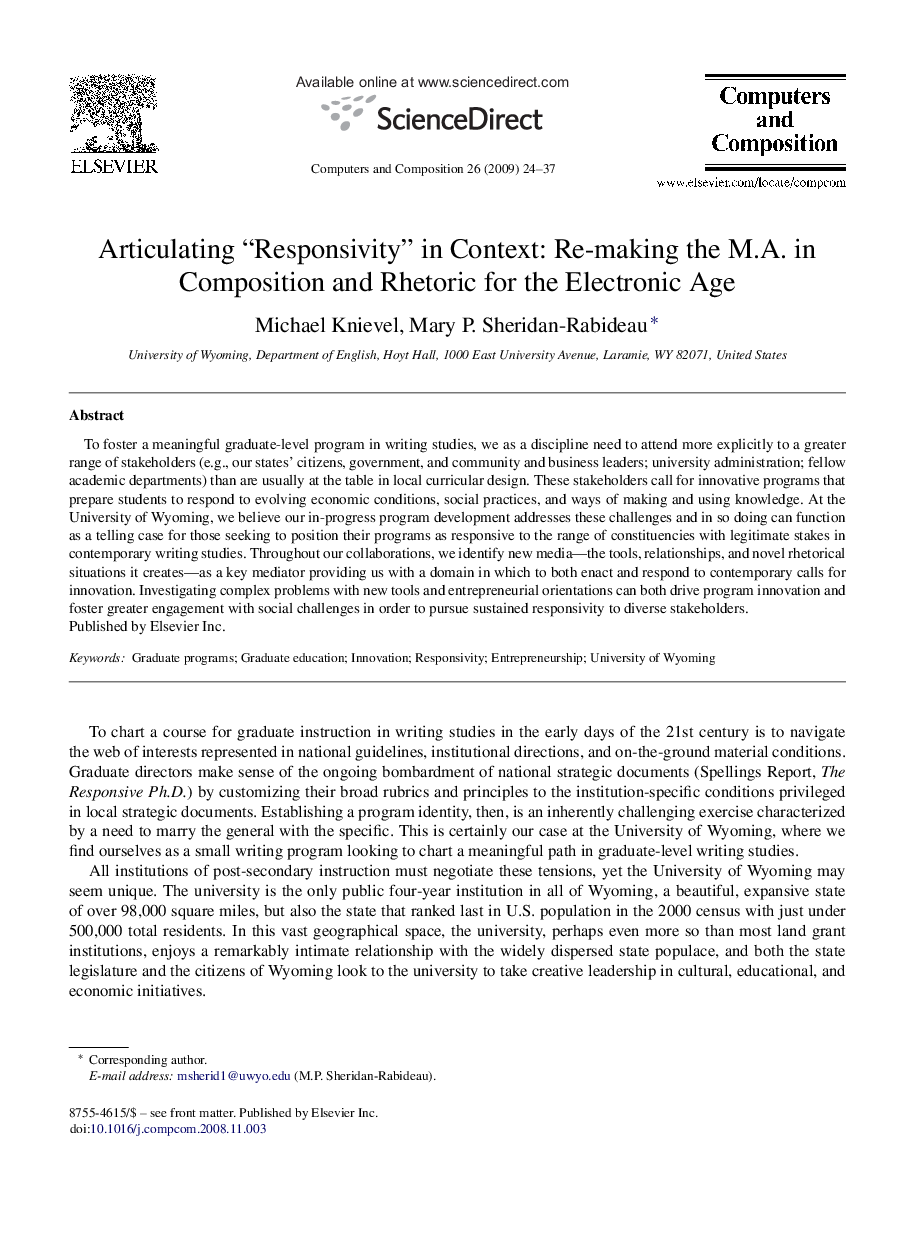| Article ID | Journal | Published Year | Pages | File Type |
|---|---|---|---|---|
| 348065 | Computers and Composition | 2009 | 14 Pages |
To foster a meaningful graduate-level program in writing studies, we as a discipline need to attend more explicitly to a greater range of stakeholders (e.g., our states’ citizens, government, and community and business leaders; university administration; fellow academic departments) than are usually at the table in local curricular design. These stakeholders call for innovative programs that prepare students to respond to evolving economic conditions, social practices, and ways of making and using knowledge. At the University of Wyoming, we believe our in-progress program development addresses these challenges and in so doing can function as a telling case for those seeking to position their programs as responsive to the range of constituencies with legitimate stakes in contemporary writing studies. Throughout our collaborations, we identify new media—the tools, relationships, and novel rhetorical situations it creates—as a key mediator providing us with a domain in which to both enact and respond to contemporary calls for innovation. Investigating complex problems with new tools and entrepreneurial orientations can both drive program innovation and foster greater engagement with social challenges in order to pursue sustained responsivity to diverse stakeholders.
